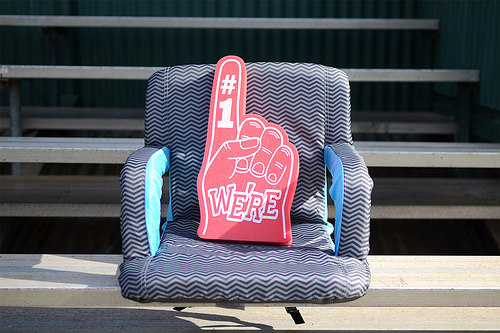Early in my career, I had the opportunity to serve as a project leader over some of my peers. Shortly thereafter, one of them, an extremely talented engineer, and I both got promotions. As his project leader, I attended the manager’s meeting to give him his promotion and then I had my meeting where I found out I was getting promoted to the same level that he was. Instead of feeling elated as I should have, I felt disappointed hoping for more. As I wrestled with that emotion over the weekend, I saw my error. I thought I deserved something more, but who was I other than a function of the talents and abilities that God gave me. Instead of trying to impress or surpass my peers, I ought to instead be working to impress Him who knows all that He gave me. When Monday came around I met with my manager, apologized for not expressing more gratitude for the promotion and asking for guidance about how I could continue to grow in my abilities and performance.
I look back on that time in my career as a pivotal moment when I transitioned from needing to prove my ability to desiring to use my ability as part of a team. Years later, this came back as a struggle when dealing with a manager who was still very clearly working for his own recognition and reward over the success of the team. After feeling used (i.e. asked to sacrifice for his benefit) , we had a few very frustrating conversations that left me feeling both increasingly frustrated and filled with self-loathing, primarily for having to push for my own personal benefit. During my next vacation, I ended up reading “Tribal Leadership” by Dave Logan and John King and it finally provided words to describe how I was feeling and reminded me of my earlier realization.
King and Logan set out to characterize organizations by the way they talked among themselves. In the end they created several levels of organization:
- A level 1 organization communicates that “Life Sucks!” It doesn’t matter what you do, life is going to suck, so beg, borrow, steal, cheat, whatever it takes because nothing will change. Life sucks for everyone. This level of organization would describe something like a street gang.
- At level 2, it becomes more personal: “My Life Sucks”. Now there is a recognition that it appears some people’s life doesn’t suck, but mine does. This would be the way highly bureaucratic organizations might talk among themselves – they work for the weekends, something to distract themselves from their pain.
- At level 3, we transition to feeling better about our own life and describe it as: “I’m great (and you’re not)”. The parenthetical is important because it describes the tension. A personal pursuit of excellence and competition with our peers to prove our greatness. There are plenty of high performing organizations whose employees stay at this level.
- At level 4, through some kind of epiphany, we realize that in fact: “We’re great!”. Upon realizing this, we can start seeing and appreciate the different skills our peers bring. Getting the credit is less important than succeeding as a team.
When we are working with a level 3 mindset, we tend to want to have dyadic relationships: lots of one on one relationships where we are the center. This allows us control, influence and power. As we move to a level 4 mindset, we start having triadic relationships. We may know two people who should meet and go on to do great things (even without us). We want to introduce people rather than viewing our relationships as a resource that allows only us to succeed.
They discuss the transitions through the different stages as a progression. One needs to feel comfortable with their own ability in level 3 before they can progress to level 4 and as I noted they describe the need for an epiphany – which some people like my previous manager never have. Plenty of people have incredible success and never go beyond their own ability, it requires a realization that it’s not about them and that it’s awfully lonely viewing everyone else as the competition.
This is partially why it was difficult for me to go back to working with someone who had success in level 3 and had no concept or understanding of level 4 or team work for that matter. I felt comfortable throwing down in a level 3 game, but hated myself because it’s not who I want to be. But this model provides words that can help us recognize where people are at in their progression and can help us better know how to work well with them. It can also help us seek out jobs with people who are similarly minded. Where I work now, I’ve often described that I work with a lot of smart people who know they are smart so they don’t have to keep proving it to you.
Regardless of the organization we find ourselves in though, we can’t forget who we are, nor who made us.
Photo Credit: yourbestdigs cc

Leave a Reply